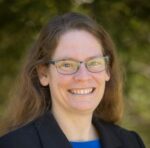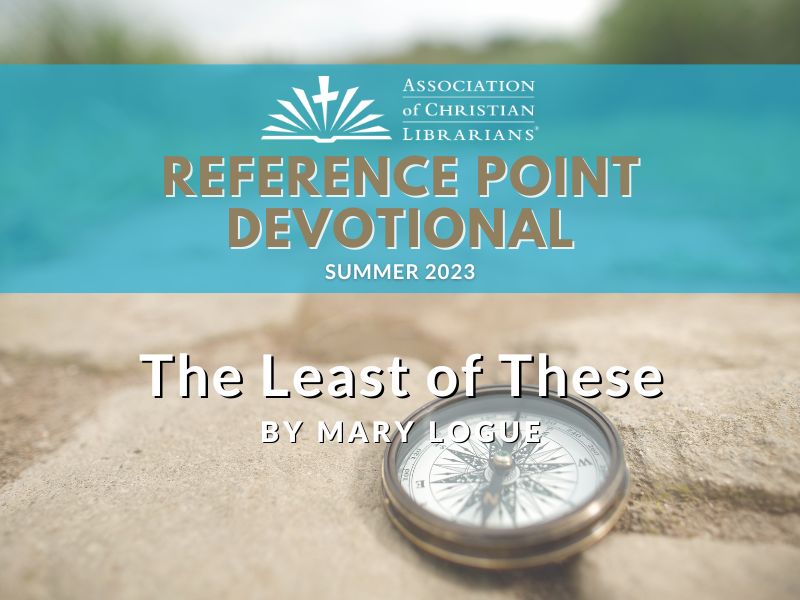“The King will reply, ‘Truly I tell you, whatever you did for one of the least of these brothers and sisters of mine, you did for me.’” – Matthew 25:40 NIV
While working in the public library my understanding of who the “least of these” were grew as I daily interacted with those who are marginalized in society: the homeless, those who are technologically challenged, those who aren’t comfortable speaking English, the recently released from prison, and those whom society seems to have forgotten for whatever reason.
So many of my patrons, generally regulars, were struggling or hurting — sometimes through poor choices of their own, sometimes from a series of incidents they had no or little control over, sometimes because of one seemingly minor event, and sometimes because of their place in society. I saw how quick and easy it is to go from being perfectly fine in life (financially, emotionally, spiritually) to slipping into a state of disaster — oftentimes finding yourself there alone.
The marginalized aren’t just in our public libraries. They also exist in our academic libraries. It just looks different. What about our first-generation students, those who don’t “conform” to the institutional culture, those with disabilities? Look at any library whether public, academic, or special and you find a population of patrons there that is marginalized. Who are those in your library who fall into that category? There are many ways to be marginalized — so many people who are unseen all around us. Who is it that I have not been seeing or have been judging too quickly or harshly? And, what is my responsibility to them?
God has purposefully placed us in our jobs, our churches, and our social circles. We have each been gifted in specific ways and called to help “the least” who are in our lives. That help may be financial, providing services, teaching, listening, a smile, or a simple acknowledgement of someone’s presence. At the public library I realized there were so many who just needed to know that they were seen and valued as a person. Concepts such as homelessness, discrimination, and disadvantage became individuals with faces I saw every day — individuals with such complicated situations and hurts. It was hard to see God’s plan as I saw the problems and the unfixable pain of those around me. But I know God loves each person, and He invites me to be His arms, words, and presence on earth as best I can to love His people.
A quick reminder though — while we are called to help others, we are never called to do more than we have the capacity for. I may not have the capacity (financially, emotionally, etc.) to help in certain situations. Others will. Know your limit. Love and care and act when God calls you to. And, when He calls you to care for yourself instead, do so. That’s ok. And, there are times we may be “the least” of these and need the care and help of others. That’s ok too; accept it.

Mary Logue
Mary is the Resource Discovery Librarian at Point Loma Nazarene University in San Diego, CA. She has been an ACL member since 2011.


